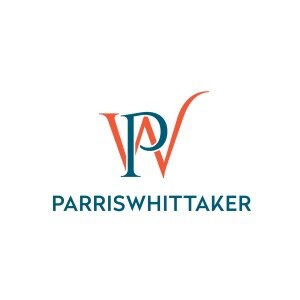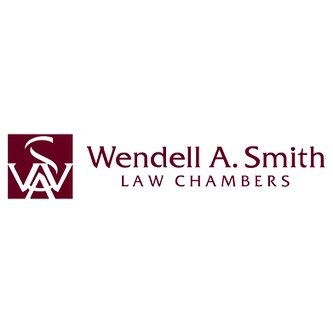Best Conveyancing Lawyers in Freeport
Share your needs with us, get contacted by law firms.
Free. Takes 2 min.
Free Guide to Hiring a Real Estate Lawyer
List of the best lawyers in Freeport, Bahamas
About Conveyancing Law in Freeport, Bahamas
Conveyancing in Freeport, Bahamas refers to the legal process of transferring property ownership from one party to another. Whether you are buying, selling, or otherwise dealing with real estate, conveyancing ensures the legal rights and obligations of all parties are properly handled. In Freeport, this process can involve unique considerations due to local property laws, the involvement of the Grand Bahama Port Authority, and requirements specific to the Hawksbill Creek Agreement. Legal professionals play a vital role in ensuring that the transfer is legally sound and that all statutory and contractual obligations are met.
Why You May Need a Lawyer
While some might consider handling conveyancing themselves, property transactions in Freeport can be complex and carry significant legal and financial risks. Here are some common situations where you may require legal help:
- Purchasing residential or commercial property in Freeport
- Selling property and ensuring a clear transfer of title
- Dealing with properties under mortgage or liens
- Transferring ownership due to inheritance or as a gift
- Navigating leasehold or strata title arrangements
- Resolving disputes over boundaries, easements, or rights of way
- Ensuring compliance with the Hawksbill Creek Agreement and Grand Bahama Port Authority regulations
- Assisting with foreign ownership requirements
A conveyancing lawyer provides legal advice, reviews and prepares documents, manages compliance with local statutes, coordinates with banks and government registries, and helps protect your interests throughout the process.
Local Laws Overview
Conveyancing in Freeport, Bahamas operates under a distinctive legal framework influenced by Bahamian law, British Common Law, and the unique status of Freeport under the Hawksbill Creek Agreement. The Grand Bahama Port Authority administers local governance, including property regulations. Some key points relevant to conveyancing include:
- All real estate transactions must comply with Bahamian property laws and local by-laws.
- Land title is generally registered under the Registrar General but may also involve the Port Authority.
- The Hawksbill Creek Agreement grants special economic benefits and requirements for land transactions in Freeport.
- Foreign nationals must obtain government approval for property purchases and may be subject to additional fees and requirements.
- Stamp duty and Value Added Tax may apply to property sales or transfers.
- Due diligence is required to confirm good title, resolve any encumbrances, and ensure compliance with all regulations.
Local expertise is essential, as the interplay between national, local, and Port Authority regulations can make conveyancing in Freeport more complex than in other areas.
Frequently Asked Questions
What is conveyancing?
Conveyancing is the legal process of transferring ownership of land or property from one person or entity to another. It includes preparing and reviewing documents, conducting searches, arranging payments, and registering the transaction with relevant authorities.
Do I need a lawyer to buy or sell property in Freeport?
While it is not strictly required by law, it is highly recommended to use a lawyer familiar with Freeport's unique laws and the requirements of the Grand Bahama Port Authority and the Hawksbill Creek Agreement.
What documents are required for a property transfer in Freeport?
Common documents include the Agreement for Sale, title deed, government permits for foreign buyers, property tax clearance, and any relevant strata or lease documents.
What fees and taxes are involved in conveyancing?
Buyers and sellers may be responsible for government stamp duty, Value Added Tax, legal fees, registration fees, and Port Authority charges, depending on the specifics of the transaction.
How long does the conveyancing process take?
The timeline can vary from several weeks to a few months, depending on the complexity of the transaction, completion of due diligence, and the responsiveness of authorities involved.
Are there restrictions on foreigners buying property in Freeport?
Yes, foreign purchasers must typically apply for a permit from the Investments Board and may face additional regulatory requirements.
What is the Hawksbill Creek Agreement and how does it affect conveyancing?
The Hawksbill Creek Agreement is a special legal arrangement that grants significant autonomy and economic benefits to Freeport. It creates unique property transfer procedures and obligations overseen by the Grand Bahama Port Authority.
What is involved in verifying a property's title?
A lawyer or licensed conveyancer will conduct title searches, ensure there are no outstanding liens or legal issues, confirm boundaries, and verify that the seller has legal authority to transfer ownership.
What role does the Grand Bahama Port Authority play in property transactions?
The Port Authority regulates property transactions within Freeport, including deed registration, property use approvals, and application of local regulations. Its approval may be necessary for certain transfers.
What should I do if there is a dispute over a property transaction?
Seek immediate legal advice from a lawyer experienced in Bahamian and Freeport property law to resolve disputes and protect your rights, whether the issue concerns contract terms, boundaries, or financial matters.
Additional Resources
When seeking more information or assistance with conveyancing in Freeport, Bahamas, consider the following resources:
- The Grand Bahama Port Authority - Handles Freeport-specific property matters and administration
- Registrar General's Department - Responsible for land registration and public records
- Bahamian Bar Association - Offers directories and information on qualified lawyers in conveyancing
- Ministry of Financial Services, Trade and Industry and Immigration - Regulates foreign property investments and approvals
- The Ministry of Housing and the Environment - Provides information on property taxes and zoning
These organizations can offer guidance, forms, and clarity on legal requirements for property transactions in Freeport.
Next Steps
If you require legal assistance with conveyancing in Freeport, Bahamas, follow these steps to ensure a safe and successful property transaction:
- Gather all relevant documents, such as title deeds, contracts, identification, and any correspondence regarding the property
- Contact a lawyer experienced in Freeport conveyancing law who is familiar with the Hawksbill Creek Agreement and Grand Bahama Port Authority regulations
- Request a consultation to discuss your situation, ask questions, and obtain an upfront estimate of fees and expected timelines
- Allow your lawyer to conduct the appropriate due diligence, draft or review transaction documents, and manage all interactions with government authorities and other parties
- Remain informed throughout the process and request updates as needed to ensure that your interests are fully protected
By seeking qualified legal guidance, you can minimize risk, prevent costly errors, and achieve your property goals with confidence.
Lawzana helps you find the best lawyers and law firms in Freeport through a curated and pre-screened list of qualified legal professionals. Our platform offers rankings and detailed profiles of attorneys and law firms, allowing you to compare based on practice areas, including Conveyancing, experience, and client feedback.
Each profile includes a description of the firm's areas of practice, client reviews, team members and partners, year of establishment, spoken languages, office locations, contact information, social media presence, and any published articles or resources. Most firms on our platform speak English and are experienced in both local and international legal matters.
Get a quote from top-rated law firms in Freeport, Bahamas — quickly, securely, and without unnecessary hassle.
Disclaimer:
The information provided on this page is for general informational purposes only and does not constitute legal advice. While we strive to ensure the accuracy and relevance of the content, legal information may change over time, and interpretations of the law can vary. You should always consult with a qualified legal professional for advice specific to your situation.
We disclaim all liability for actions taken or not taken based on the content of this page. If you believe any information is incorrect or outdated, please contact us, and we will review and update it where appropriate.









